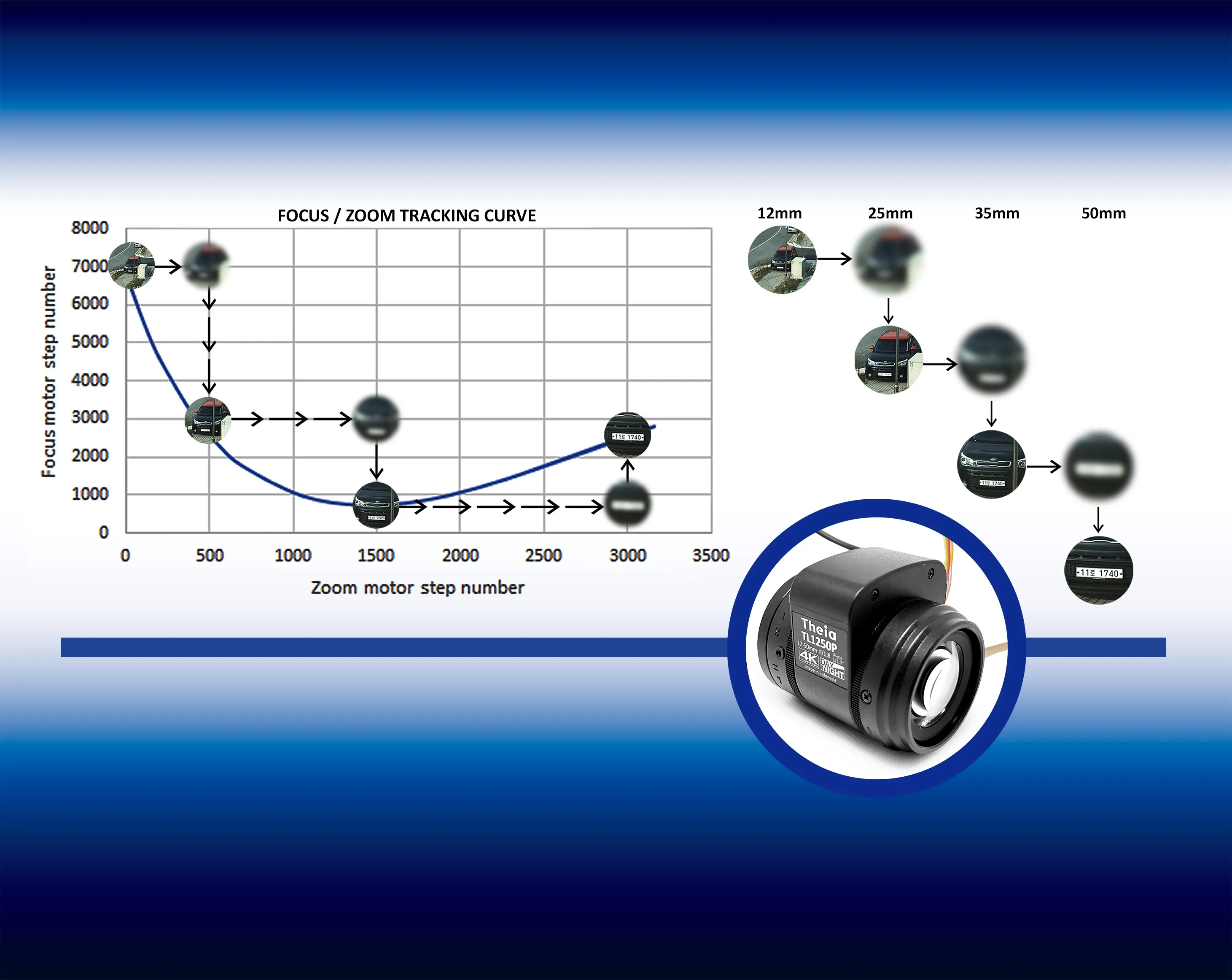
Intelligent traffic applications have benefited from motorised varifocal lenses that allow automatic or remote adjustment of field of view (FoV) and focus.
In applications where the camera is installed on a gantry, a motorised lens allowing remote or automated FoV and focus distance adjustment provides real-time adjustment without the need for creating traffic control zones. Applications like mobile speed camera systems can also benefit by protecting the lens from a harsh environment while still allowing adjustable FoV and object focus distance fine-tuning.
A lens that offers remote or automatic adjustment of focus and focal length can benefit these situations.
With this added flexibility there are challenges. Variation in manufacturing and tolerances lead to slight and sometimes significant differences from lens to lens. For these variables, the lenses can be calibrated, and the calibration data can be used to improve the performance and speed of using the lens, allowing the user to identify the ideal focus sharpness and find the precise image resolution and FoV for the application more quickly.
Theia’s Calibrated lenses are individually characterised and calibrated to provide a rich array of data sets. This calibrated data is provided so the user can optimise image quality in real time without the requirement of difficult or costly field calibration fixtures. The calibrated data sets vary based on the features of the lens and may include:
Zoom/Focus Tracking Curve: Many of Theia’s Calibrated lenses have focus and zoom motors. For these, Theia provides a measured zoom/focus tracking curve so the user can program the lens focus motor position to maintain focus even as the focal length is changed, allowing for remote control of zoom and focus.
Iris Opening vs. Motor Step: For many of Theia’s Calibrated lenses, the lens aperture is controlled by a motorised precise iris (p-iris) which can be digitally controlled for varying lighting conditions. Theia’s Calibrated lenses provide the iris size for each motor step based on design values. For HDR images, the iris can be set to allow different exposures for the same scene brightness. In addition, the iris can be used along with exposure time to control depth of field of the image.
Focus Shift in NIR: Theia’s near IR corrected lenses maintain a single image focal plane for visible through near IR light, allowing true Day/Night cameras to use a single lens without requiring frequent focus adjustments. Theia’s Calibrated lenses provide a focus shift calibration curve at different wavelengths based on lens design values that may be used to improve image resolution still further when only a small wavelength band such as IR-only is used.
Other calibrated data sets include measured distortion, measured resolution, intuitive unit conversion for zoom, focus and iris, relative illumination, and chief ray angle.
The Calibrated lenses will also include meta data about the specific lens including part number, serial number, manufacturing date, number of motor steps, MOD, image size and more. The data is provided in JSON file format, easily downloaded and incorporated into image processing streams to enhance overall system image quality.
Content produced in association with Theia










